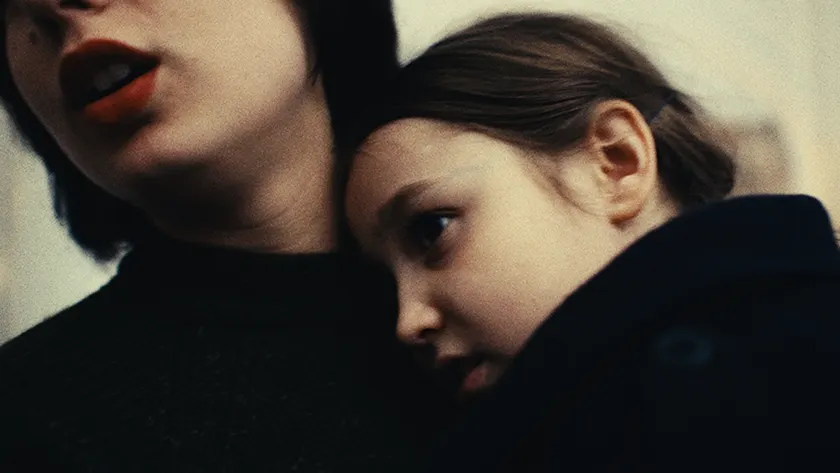Romane Bohringer’s Tell Her I Love Her masterfully dissects the love and complications embedded in fraught mother-daughter relationships.
Director: Romane Bohringer
Original Title: Dites-Lui Que Je L’Aime
Genre: Drama
Run Time: 92′
Cannes Premiere: May 19-24, 2025
Release Date: TBA
When Romane Bohringer read Clémentine Autain’s 2019 novel, “Dites-lui que je l’aime”, she was taken aback by the way Autain’s complicated relationship with her mother mirrored her own. Autain’s book chronicled her relationship with her mother, actress Dominique Laffin, who passed away at the age of 33 when Autain was only 12 years old. While Dominique is publicly remembered as a free-spirited actress, Autain holds very different memories of her mother.
Dominique had struggled with alcoholism throughout her life and in the years leading up to her passing, Autain lived with her father and saw very little of her mother. In her novel, she deals with the grief and the pain of their fraught relationship while also seeking to understand who she truly was. As Bohringer read “Dites-lui que je l’aime”, she felt an undeniable connection to Autain’s story.
Bohringer’s mother, Marguerite “Maggy” Bourry, was a bohemian artist who sought greatness. Maggy left Bohringer (and Bohringer’s father Richard Bohringer) when she was nine months old. Unbeknownst to Bohringer in her youth, Maggy heavily struggled with a heroin addiction and would later pass away at the age of 36 when Bohringer was 14 years old.
Bohringer’s memories of her mother are more scattered than Autain’s, but as Bohringer read through Autain’s novel, more and more of her mother began to come back to her. In Tell Her I Love Her, Bohringer adapts Autain’s personal mother-daughter story while simultaneously seeking to understand her nuanced relationship with her own mother.

Before beginning the film, Bohringer was asked if she was ready to take on the weight of this project, as it would force her to directly confront the most complicated and painful relationship in her life. While she admitted she had anxieties about the project, she felt she had to tell this story. I don’t think at the time Bohringer understood the impact her courage would have, but I can confidently say this story is a gift to daughters and mothers alike.
Throughout Bohringer’s film, you can see her and Autain struggle with their images of their mothers. Their memories are oftentimes not happy ones, as they spent the most formative years of their youth confused by their mother’s abandonment or erratic behavior. They were too young to understand addiction and their mothers’ respective relationships to it, yet they were still subject to its consequences.
Even though this story turns deeply personal, Bohringer, strangely enough, is able to show the objective multitude of emotions both she and Autain feel towards their mothers. She depicts anger, resentment, sorrow, dread, love and longing all in equal parts, creating a truly well-rounded picture of grief and motherly connection.
While she shows the shortcomings in Dominique and Maggy’s parenting, as well as the effect it had on her and Autain, she ultimately gives them the gift of grace. Through telling their stories, both Bohringer and Autain are able to come out the other side of their trauma and grief to a state of empathy and forgiveness.
In creating this film, Bohringer was dared to go and seek out her mother, who for so long was a looming figure in her life with no actualized substance. When she was older, years after her mother had passed, she was told of her struggles with addiction, but other than that, Maggy was a distant figure in her life.
By seeing the depth in which Autain fought to understand and actualize her mother, Bohringer began to think the only way to tell this story openly and honestly was to give her mother the same courtesy of being curious about her circumstances and her personage outside of motherhood.
Tell Her I Love Her shows grief and motherhood in their totality. Bohringer is incredibly intentional in validating and representing all the emotions both she and Autain feel towards their mothers, for better or for worse, regardless of how anyone might perceive them. Her depiction of grief and her longing to come out the other side of it with compassion for her imperfect mother is an awe-inspiring ode to the power of empathy.
Tell Her I Love Her (Dites-Lui Que Je L’Aime): Movie Plot & Recap
Synopsis:
Romane Bohringer sets out to adapt Clémentine Autain’s 2019 novel, “Dites-lui que je l’aime”. Autain’s book tells the story of her fraught relationship with her mother, who passed away when Autain was only 12 years old. Bohringer feels called to tell this story as it is extremely similar to her own and along the way, both women are forced to contemplate their relationships with their late mothers and the ways in which it has impacted their lives.
Pros:
- The adaptation of Autain’s book is beautifully done and Bohringer’s incorporation of her own story adds incredible depth to this conversation about the nuanced relationships between mothers and daughters.
- An accurate depiction of the many ways grief manifests.
Cons:
- The transition from Autain to Bohringer’s relationships with their mothers is smooth at first, but as the stories branch out, they lose the sense of connection that binds them. This is understandable as they are different situations, but the way in which their stories branch away from one another makes the film feel fragmented.
Tell Her I Love Her (Dites-Lui Que Je L’Aime) premiered at the Cannes Film Festival on May 19, 2025, as a Special Screening, and will be screened again on May 20-24.

